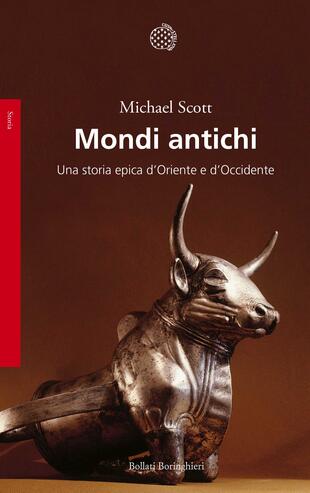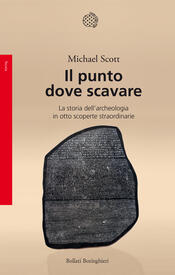Mondi antichi
-
Tradotto da: Bianca Bertola
- Leggi le prime pagine
Tutti i formati dell'opera
Acquistalo
Sinossi
Viviamo in un mondo globalizzato e interconnesso. Eppure, paradossalmente, sembra che preferiamo scrivere e leggere la nostra storia come se si fosse svolta in blocchi isolati e impermeabili. E se invece provassimo a raccontare una storia più ampia, che non sia quella di un monolitico «mondo antico», ma di tanti, diversi mondi antichi in stretta relazione uno con l’altro?
Sono queste le premesse di metodo e stile con cui Michael Scott cerca di abbattere gli steccati disciplinari che hanno finora costretto lo studio della storia, dando finalmente al lettore una prospettiva interconnessa degli inizi del mondo che conosciamo oggi attraverso il racconto di tre momenti chiave del passato: la politica, la religione e la guerra, tutti fattori che hanno contribuito a creare il mondo antico dal Mediterraneo alla Cina. Così, la nascita della democrazia ateniese e della Repubblica di Roma è anche l’età degli insegnamenti di Confucio in Cina; mentre Annibale sfida la potenza di Roma e attraversa le Alpi, la Cina viene unificata nel suo primo impero; quando Costantino impone il cristianesimo al mondo romano, il buddhismo pervade la Cina attraverso le vaste rotte commerciali che oggi conosciamo come «Via della Seta».
Mondi antichi è un importante lavoro di storia globale, un viaggio coinvolgente che sfida il nostro modo di pensare il passato e ridisegna la mappa dell’età classica per rivelare le sue connessioni nascoste, e ci mostra come la storia antica possa ancora riservarci utili insegnamenti per interpretare il nostro tempo.
- ISBN: 8833928519
- Casa Editrice: Bollati Boringhieri
- Pagine: 448
- Data di uscita: 19-10-2017





